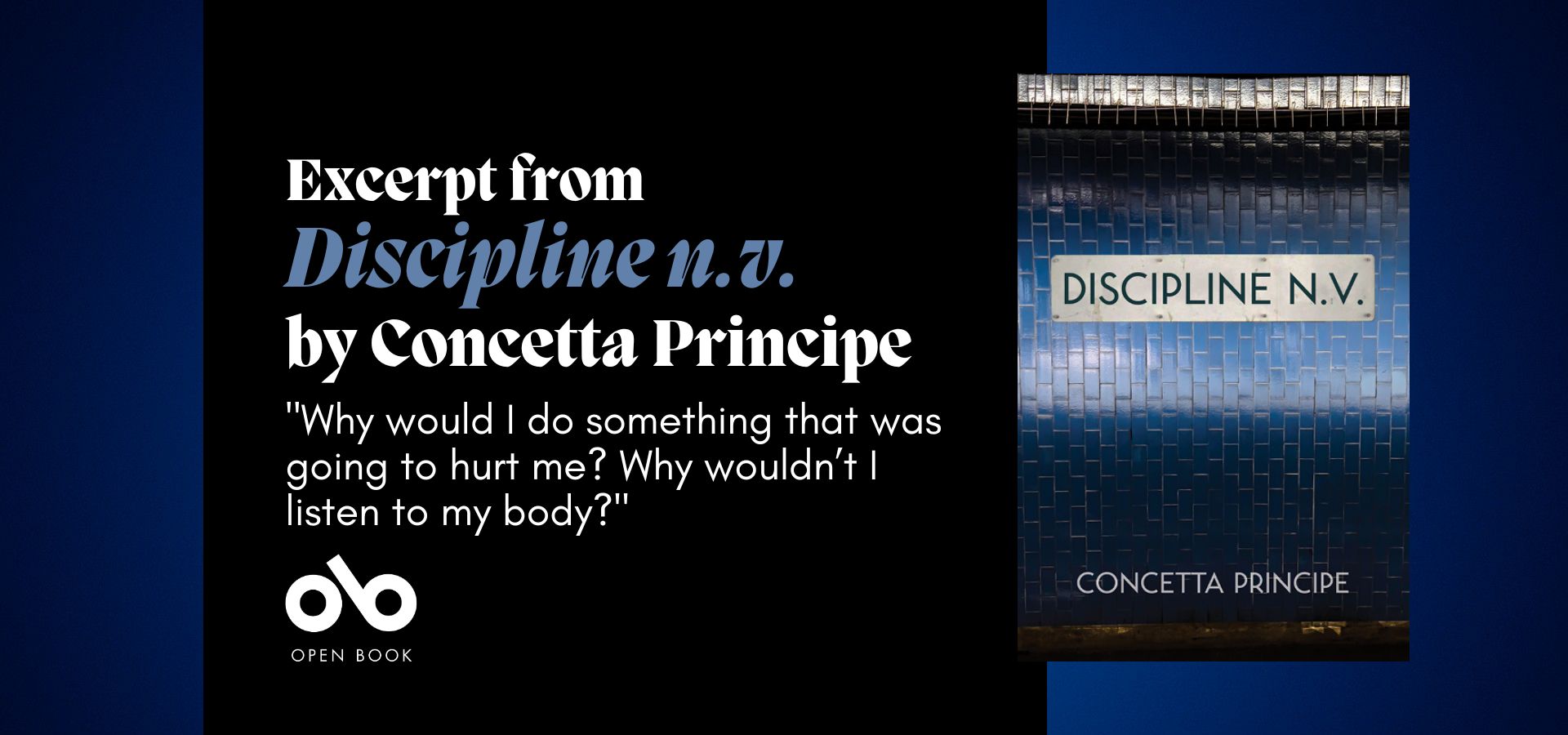Read an Excerpt from Discipline n.v by Concetta Principe, a Wry Lyric Memoir of Navigating Academia's Prejudices
The academic world's nickname—the Ivory Tower—is meant to communicate that it's an environment where scholars can be cut off from everyday concerns while they pursue deep knowledge. But that removal can also create division and an exclusivity that becomes problematic at times, as scholar and poet Concetta Principe found when she began her own academic pursuits. Determined to earn a doctorate, she bumped up against barriers and prejudice, particularly related to living with a mood disorder.
But Principe knew she had the intellect and ability to contribute, even when others discouraged her from her path, and through grit and intelligence, she found her place. Telling the story of her PhD journey in Discipline n.v. (Palimpsest Press), she takes readers on a lyric path that blends her acclaimed poetic voice with a memoir that lays bare the shortcomings of the academic sphere—a colonized place where trauma and differences are sometimes viewed with suspicion—while celebrating the titular discipline and ingenuity that represents the best of the scholastic marathon she completed.
We're sharing an excerpt from this thoughtful, poetic work today, courtesy of Palimpsest Press, in which we see Principe's voice on display as she shares some of the triumphs and setbacks of her journey.
Excerpt from Discipline n.v. by Concetta Principe:
Failure
My failure does not start in the third year of my undergrad, first year at U of T, in my second year class on Chaucer. But I will start there since it’s relevant to my degree, my suffering (we all suffer), and the reason my application to the PhD program in English Literature at York University was rejected. It was a shock, rejection always is. I begged The Chair for an explanation. He was a medievalist, someone whose scholarship was on Arthurian Legend, who had probably aced Chaucer, so he was embarrassed for me when he explained my D in Chaucer “didn’t impress the committee.” That impression, in fact, led them to reject my application.
My doctoral degree started with a medieval failure.
My Chaucerian prof at U of T was affiliated with High Anglican Trinity College, the oldest and most prestigious college at the university. She was so High Anglican that she talked that way: chin lifted, trans-continental. Yes, she spoke the imperialist accent. I don’t think she used regular toilet paper. I don’t know if anyone liked her — she was old and of a different order. None of us were equal to her. Her bones were brittle, which is why she loped in with a cane and a broken hip on that first day of class. She was gracious after all: goodness, she had so much grace, much in the way a New England snob does. Almost a masonic, closed and very suspicious of foreigners. I was suspicious, in name and colour. I was the dago born of working class jeans, destined to be a salesclerk at Cotton Ginny.
Apparently, Chaucer said “K-nigh-t” as the Germans did. She loved to say it, all its consonants sticking as they rolled along her teeth and tongue.
I had also read Joyce’s Ulysses that third year of my undergrad, thanking god I’d read Homer’s Odyssey, and loving Joyce’s Penelope. For the first time, I read Sir Gawain and the Green Knight. K-nigh-t. A tale I would reread too many times to count.
The volatility of my personal relationship at the time, the anxiety of being abandoned, the anxiety of not knowing the future, the terror that I was destined to fail...
I failed my first assignment on Chaucer. In fact, the professor said that day she returned the essays, “if you have failed this assignment, I advise you to quit, now, while you’re ahead.” I couldn’t. Why? Because I only give up if I’m thrown off the boat. I didn’t drop out and was refused boarding to the doctorial ship because of my D, or disease. Or was it D+? A matter of a degree.
Your CanLit News
Subscribe to Open Book’s newsletter to get local book events, literary content, writing tips, and more in your inbox
With the Disavowal of a King who is about to lose his kingdom, I turned from the ‘letter’ that said ‘no’ to my PhD application in English, and applied for an MA in the Humanities Program where I was accepted. I saw no significant difference between English Lit and Humanities. And unknowingly, I had become affiliated with all the MA MA’s in the world: the double Master.
Why? — A Working Thesis Question
Why would I walk straight into failure? Why wasn’t I smart enough to accept NO and walk away? That’s right. Why would I do something that was going to hurt me? Why wouldn’t I listen to my body? Why wouldn’t I heed my disordered thoughts? Why do any of us do things that hurt us?
____________________________________________
Excerpted from Discipline n.v. by Concetta Principe. Published by Palimpsest Press. Copyright 2023 by Concetta Principe. Reprinted with permission.
Concetta Principe is an award-winning poet and a scholar. Discipline n.v. is her most recent publication. Her book is Stars Need Counting: Essays on Suicide was published by Gordon Hill Press in 2021. Her first poetry collection, Interference (Guernica Editions, 1999), won the Bressani Award for poetry in 2000, and This Real, published by Pedlar Press, was long-listed for the Raymond Souster Award in 2017. She teaches at Trent University.






